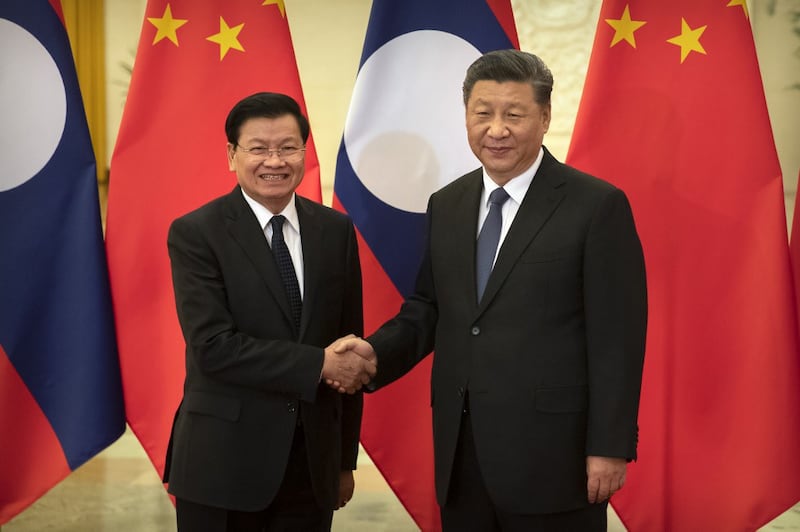Laos’ ruling Communist Party is set to elevate Prime Minister Thongloun Sisoulith, a veteran official credited with fighting corruption, to party chief and state president to run the one-party state for five years, according to party voting lists announced Thursday.
The Soviet-trained Sisoulith, 75, emerged at the top of a list of 71 members of the Lao People’s Revolutionary Party Central Committee Secretariat, while incumbent LPRP chief and Lao President Bounnhang Vorachith was left off the list, indicating his retirement at 83.
In his speech to the Jan 13-15 congress in Vientiane, Sisoulith took aim at poor financial management, debt and murky business practices in the landlocked country of 7.2 million people that has known only LRPR rule since 1975.
“During the last five years, the debt has not been successfully tackled. Our financial management has failed. The stability of our currency has been delicate and our foreign currency reserves have been lower than planned,” he told the congress.

Sisoulith, who held multiple senior posts in government since 1987 and became prime minister in 2016, said the country’s business culture is “lacking transparency” while problems included high unemployment, poor job security and illegal immigration.
He outlined five-year economic development goals including reducing poverty and inequality; improving access to healthcare and education for the poor; diversifying the economy away from dependence on exploitation of natural resources, reducing debt and “financial leaks,” and fixing the tax collection system.
“Thongloun deserves to be at the top because he is very experienced politician,” said a local LPRP member in Borikhamxay province, who identified himself by hi nickname, “Vong.”
“As prime minister, he has had some success cracking on corruption, illegal logging and banning the export of wood,” he said.
The departure of Vietnam-trained General Secretary Bounnhang Vorachith was predicted by a party member to RFA early this week, although some observers thought he would follow recent LPRP practice and serve a second five-year term.
“Bounnhang has made the right decision to step down because he is 83 years old, too old for the top position. However, he may still remain an important adviser to the party for next 4-5 years,” said Vong.
The general secretary also serves as state president and will appoint a prime minister, to be rubber stamped by the Lao National Assembly, which will be elected next month.
Ranking after Thongloun Sisoulith on the leadership slate are Pany Yathotou, chairwoman of Lao National Assembly; deputy prime minister Bounthong Chitmany; and vice-president Phankham Viphavanh.
Public opinion is hard to gauge in Laos, where the LPRP monopolizes political power and control of the media, and has jailed citizens for posting mild complaints about the government on Facebook.
Some residents of the Lao capital, however, said they were not inspired by the reshuffle, in which only two politburo members were replaced by new faces.
“Nothing will get better. The Party and government will be led by the same leaders. That’s why I’m not interested in Lao politics,” said a woman in Vientiane, who withheld her name in order to speak freely.
“I listened to the prime minister’s last-five-year report and new five-year plan; they are all the same. He said the same thing,” said another capital resident.
Reported by RFA’s Lao Service. Translated by Max Avary. Written by Paul Eckert.
